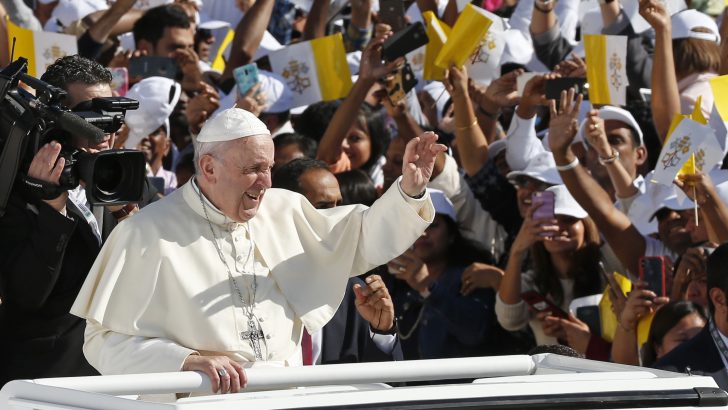Questions of Faith
The Pope doesn’t have an easy job; while some think of him as a mysterious man who lives in the Vatican, Catholics know him as the head of the Church and a shepherd to his entire flock. The Catechism describes his role as such: “For the Roman Pontiff, by reason of his office as Vicar of Christ, and as pastor of the entire Church has full, supreme, and universal power over the whole Church, a power which he can always exercise unhindered.”
Tending to well over one billion Catholics today, the Pope clearly has a lot on his hands. But how exactly do you attain this role? How do you become Pope?
Given the immense responsibility that comes with being Pope, it’s no surprise that the journey to don the papal hat is long one. This drawn-out process is very different to handing in a CV or succeeding in a job interview.
Leader
Firstly, only half the population can become Pope as you must be a man to serve this office. Secondly, you need to be a Catholic.
It wouldn’t make much sense being the leader of a Church you don’t personally subscribe to. By ticking these two requirements, you’ve increased your odds of someday becoming Pope – but given that there is only one Pope at any given time, the chances of rising to this level in the Church are slim.
The vast majority of men chosen to be a Pope were cardinals before their election. In fact the last non-cardinal Pope to be picked from outside the College of Cardinals was Pope Urban VI IN 1378. Given the unofficial practice of selecting a cardinal to become Pope, it stands that your most likely chance of becoming one is to firstly be appointed as a cardinal.
Technically, cardinals don’t need to be ordained and therefore it’s theoretically possible that anyone could become one. While this is plausible on paper, in practice, the majority of people appointed to this position are bishops. There are some exceptions like St John Henry Newman who skipped a few stages and was appointed a cardinal when he was just a priest.
When a Pope dies or alternatively resigns from his office (as Benedict XVI did in 2013), the College of Cardinals are summoned to the Vatican to select the next Pope”
To be a bishop, you must firstly be ordained a priest for five years and be over the age of 35. After completing a doctorate, you have to wait for a bishop vacancy, and slowly rise up the ladder – becoming an archbishop will definitely improve your chances of being elected a cardinal.
When a Pope dies or alternatively resigns from his office (as Benedict XVI did in 2013), the College of Cardinals are summoned to the Vatican to select the next Pope. If over two-thirds of the votes back a candidate during this secret conclave, then they are officially elected Pope.
Nowadays this voting process lasts around five days. Once chosen, the now-Pope selects his new name and makes himself known to Catholics all around the world.


 Colm Fitzpatrick
Colm Fitzpatrick Pope Francis
Photo: CNS
Pope Francis
Photo: CNS 
